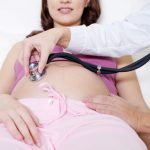What are the Pregnancy Risks after 35 years of Age?
Today, women are embracing education, independence, and pursuing their careers, leading to a growing trend of pregnancy after the age of 35, especially in metropolitan cities. However, it’s important to acknowledge that, from a conception perspective, age is more than just a number; it signifies a decline in fertility. Pregnancy after 35 can come with certain risks, impacting the health of both mother and baby, making it a high-risk pregnancy. In this article by Dr. Madhu Goel, the best Gynecologist in New Delhi, we will explore what to expect and how to ensure a healthy pregnancy if you’re planning to conceive later in life.
Understanding the Impact of Age on Fertility
A woman’s fertility begins to decrease at around 32 years of age, and after 37, it declines rapidly. Every woman has a finite number of eggs in her ovaries, and with advanced age, both the quantity and quality of these eggs decrease. This means that older women may face challenges in fertilization compared to their younger counterparts. Additionally, age can bring various medical conditions such as uterine fibroids, endometriosis, high blood pressure, and diabetes, which can further complicate fertility.
Age and Its Effects on Fertility
As a woman’s age advances, there’s a notable increase in the rates of spontaneous abortion and autosomal trisomy, which can lead to genetic disorders in the baby. The risk of fetal loss also significantly rises with advanced maternal age. These challenges are equally relevant in assisted reproduction techniques like in-vitro fertilization (IVF) for women aged 35 and above. Therefore, women above the age of 35 should:
- Seek counseling and education about the impact of age on fertility.
- Consider advanced evaluation and treatment after six months of unsuccessful attempts to conceive, or even earlier.
- If you’re over 40, immediate evaluation and treatment may be necessary.
For women aged 35 and above, understanding their fertility chances, the pros and cons of getting pregnant, and taking necessary precautions is essential, whether they aim for natural conception or assisted reproduction techniques. Consulting with your nearest gynecologist, such as Dr. Madhu Goel, is highly advisable. With advancing age, the quality and quantity of eggs decline, reducing the chances of pregnancy.
Challenges in Assisted Reproduction
While some women may consider IVF or other assisted reproduction techniques, it’s crucial to understand that the success rate decreases significantly, especially after the age of 45, and the risk of miscarriage exceeds 50 percent. In such cases, using donor eggs may become a viable option. Interestingly, even with a decline in ovarian function and egg quality, the uterus’s functionality remains intact, increasing the chances of successful implantation and pregnancy.
Seeking Expert Guidance
Every woman’s dream is to conceive and have a child. To navigate the complexities associated with advanced maternal age, it’s imperative to consult with specialists like Dr. Madhu Goel before making any decisions. Following the guidance of your nearest gynecologist in Delhi and maintaining a healthy lifestyle, including a balanced diet, regular exercise, meditation, and relaxation techniques, is crucial for both physical and mental well-being on your journey to achieving the ultimate goal – a successful pregnancy in advanced age.




